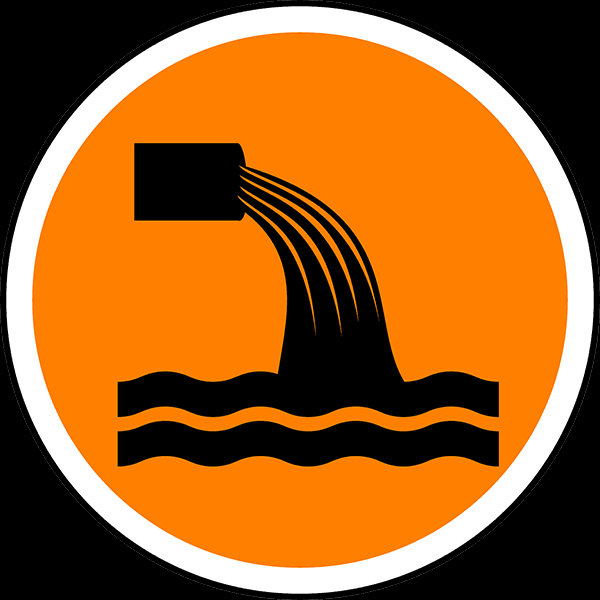Reclaim Waste - An Overview
Table of ContentsReclaim Waste Can Be Fun For EveryoneThe 2-Minute Rule for Reclaim WasteReclaim Waste Can Be Fun For EveryoneThe Basic Principles Of Reclaim Waste Unknown Facts About Reclaim Waste
Domestic sewage waste refers to the waste and products from a domestic septic container. The appropriate monitoring and disposal of domestic sewage waste need liquid waste to be transferred to a sewage treatment plant where the correct techniques and tools are used to detoxify and dispose of waste.
Commercial waste typically includes possible hazards, such as flammable materials or a combination of liquid and strong waste products, and requires a more innovative and detailed disposal process. The disposal of industrial waste commonly involves the filtering of waste prior to transport to make sure safe and correct disposal. Hazardous waste is created from results and drainage of industrial processes and production.
This type of waste can not make use of the very same sewer administration transport or processes as septic or industrial liquids. The industrial waste monitoring procedure requires the inspection and testing of liquid waste before it undertakes the disposal procedure (liquid waste disposal). Overflow waste is the fluid waste that comes from runoff and excess stormwater in extremely inhabited locations or cities
Runoff waste can cause contamination and flooding otherwise handled appropriately. Find out more regarding sewer cleansing and waste management. Making sure correct waste management can protect against catastrophes and decrease ecological damage. Both people in residential setups and specialists in business or production sectors can take advantage of comprehending the processes and regulations of fluid waste monitoring.
The Of Reclaim Waste
Contact PROS Solutions today to discover regarding our waste monitoring and disposal services and the appropriate methods to take care of the fluid waste you create.
(https://reclaimwaste1.start.page)Do you understand what occurs to your water when you end, flush the toilet or drain the cleaning machine? No? Well, it's worth recognizing. This supposed 'wastewater' is not only a crucial source but, after treatment, will certainly be released to our land, rivers or the sea. Made use of water from commodes, showers, bathrooms, cooking area sinks, washings and industrial processes is referred to as wastewater.

water made use of to cool machinery or tidy plant and devices). Stormwater, a click for more info form of wastewater, is drainage that moves from farming and urban locations such as roofing systems, parks, yards, roadways, courses and seamless gutters into stormwater drains pipes, after rainfall. Stormwater flows unattended straight to local creeks or rivers, eventually reaching the sea.
4 Easy Facts About Reclaim Waste Explained
In Queensland, most wastewater is treated at sewer therapy plants. Wastewater is moved from residential or industrial websites with a system of sewers and pump terminals, known as sewage reticulation, to a sewage therapy plant. City governments build, preserve and run most sewage therapy plants. Operators are licensed under the Environmental Management Act 1994 to release treated wastewater at an appropriate ecological standard into rivers.
The Department of Natural Resources advises city governments regarding handling, operating and maintaining sewage systems and therapy plants. In unsewered locations, city governments might need owners to set up private or household sewer treatment systems to treat domestic wastewater from commodes, kitchens, washrooms and washings. The Department of Natural Resources authorises making use of family systems when they are confirmed to be efficient.
In some new subdivisions, therapy of some stormwater to get rid of litter, sand and gravel has actually started utilizing gross toxin catches. Wastewater therapy happens in four stages: Gets rid of solid issue.
Wastewater then flows right into large tanks where solids clear up and are eliminated as sludge. Oil and residue are skimmed from the surface. Utilizes little living microorganisms called micro-organisms to damage down and remove continuing to be liquified wastes and great particles. Micro-organisms and wastes are incorporated in the sludge. Gets rid of nitrogen and phosphorus nutrients that can create algal blooms in our rivers and threaten marine life.
Everything about Reclaim Waste
Nutrient removal is not readily available at all sewer treatment plants since it requires costly specialist devices. Clear liquid effluent produced after treatment may still consist of disease-causing micro-organisms - liquid waste disposal.

This generally indicates wastewater needs to be dealt with or contaminants gotten rid of prior to it can be discharged to waterways. The majority of wastewater flows into the sewerage system. Under the Act, regional governments carry out approvals and licences for eco appropriate activities (Periods) involving wastewater releases that may have a regional influence. The department provides approvals and licences to ERAs involving wastewater releases that might have a regional or statewide influence.
Not known Incorrect Statements About Reclaim Waste
Tracking gives factual info concerning water top quality and can validate that licence problems are being fulfilled. The info obtained via monitoring gives the basis for making water top quality choices.